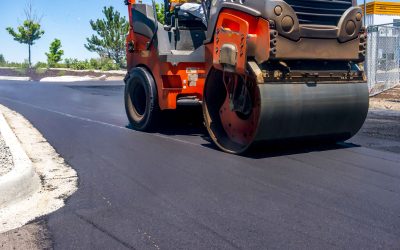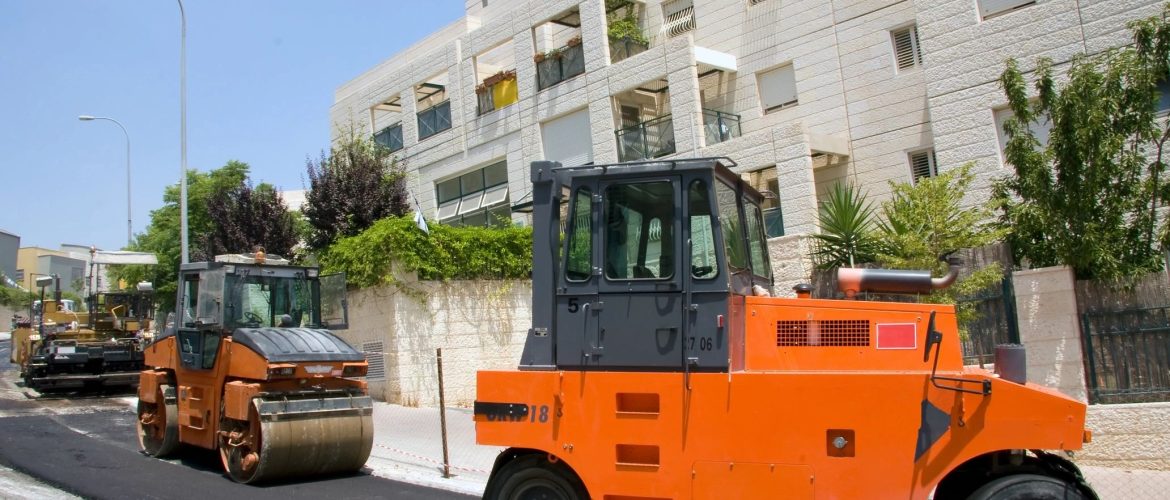Key Takeaways
- Denver’s climate poses unique challenges to driveway paving, requiring careful material selection and maintenance.
- Sustainable paving solutions, such as permeable pavers, offer environmental benefits and durability.
- Adhering to city regulations ensures compliance and supports Denver’s climate adaptation strategies.
Denver’s unique climate poses specific challenges for driveway paving, requiring careful consideration of materials and methods. The city experiences a range of weather patterns, from hot summers to snowy winters, which can significantly impact the longevity and performance of paved surfaces. Understanding these climate influences is crucial for homeowners, real estate professionals, and paving contractors in Denver. By exploring sustainable driveway paving options, such as green driveway solutions, and adhering to Denver city regulations, stakeholders can ensure durable installations that withstand environmental impacts and contribute to the city’s climate adaptation strategies.
Understanding Denver’s Weather Patterns and Their Impact to Driveway Paving
Denver’s climate is characterized by four distinct seasons with significant temperature fluctuations, ranging from below-freezing winters to hot summers. This unique weather pattern creates a challenging environment for driveway paving, as materials must withstand extreme temperature variations, frequent freeze-thaw cycles, and intense UV exposure that can accelerate deterioration of paved surfaces.
The significant temperature fluctuations and a notable freeze-thaw cycle can affect driveway materials. During the winter months, water can seep into cracks and freeze, expanding and causing further damage. This cycle is particularly harsh on asphalt and concrete surfaces, leading to cracking and potholes. Driveway installation in Denver must consider these factors to prevent costly repairs and ensure longevity.
The Freeze-Thaw Cycle and Its Effects
The freeze-thaw cycle is a critical concern for driveway paving in Denver. As temperatures drop, any water that has penetrated the surface of a driveway can freeze and expand, creating pressure that causes cracks to form. When temperatures rise, the ice melts, and the process repeats, exacerbating the damage. This cycle can degrade both asphalt and concrete driveways, making them more susceptible to structural failure over time.
To mitigate these effects, contractors often recommend using materials and techniques that enhance the resilience of driveways against freeze-thaw damage. This includes selecting flexible paving materials, applying sealants, and ensuring proper drainage to minimize water accumulation.
Urban Heat Island Effect
Denver’s urban heat island effect adds another layer of complexity to driveway paving. This phenomenon occurs when urban areas experience higher temperatures than their rural surroundings due to human activities and infrastructure. Paved surfaces, such as driveways, absorb and retain heat, contributing to elevated local temperatures. This can accelerate the degradation of driveway materials, especially in the summer months.
To combat this, sustainable driveway solutions that reduce heat absorption are essential. Options like light-colored or solar-reflective materials can help lower surface temperatures, thereby extending the lifespan of driveways and contributing to a cooler urban environment.
Choosing the Right Driveway Materials in Denver
Selecting the appropriate materials for driveway paving in Denver is essential to combat the city’s climate challenges. Asphalt and concrete are popular choices, but each has its advantages and drawbacks. Asphalt is favored for its flexibility and ability to withstand freeze-thaw cycles, making it a popular choice for many Denver homeowners. However, it requires regular maintenance to prevent damage from temperature extremes.
Asphalt: A Flexible Option
Asphalt is often chosen for its flexibility and affordability. It can expand and contract with temperature changes, which helps it withstand Denver’s freeze-thaw cycles. Asphalt driveways typically require sealing every few years to maintain their durability and appearance. This maintenance can prevent water from penetrating the surface and causing damage.
Despite its strengths, asphalt may not be the best choice for all situations. Its dark color absorbs heat, which can contribute to the urban heat island effect. However, innovations such as solar-reflective coatings are available to mitigate this issue, making asphalt a viable option for environmentally conscious homeowners.
Concrete: Durability and Longevity
Concrete is known for its durability and long lifespan. It is less flexible than asphalt, which can make it more susceptible to cracking in freeze-thaw conditions. However, using reinforced concrete or additives can enhance its resilience. Concrete driveways often have a higher upfront cost but require less frequent maintenance than asphalt, which can result in cost savings over time.
For those interested in sustainable options, permeable concrete is a viable alternative. It allows water to pass through the surface, reducing runoff and helping manage stormwater. This feature can be particularly beneficial in urban areas where reducing water accumulation is a priority.
The Role of Sustainable Driveway Paving Solutions
Sustainable driveway paving solutions are gaining traction in Denver, driven by environmental concerns and city regulations. These solutions include using recycled materials, such as reclaimed asphalt pavement, and incorporating green technologies like solar-reflective coatings that reduce heat absorption. Implementing these eco-friendly practices not only supports the environment but also extends the lifespan of driveways by reducing climate-related wear and tear.
Permeable Pavers and Green Driveway Solutions
Permeable pavers are an excellent sustainable option for driveway paving. They allow water to drain through the surface, reducing runoff and mitigating flood risks. This permeability helps manage the freeze-thaw cycle by reducing water retention in the ground, thereby minimizing potential damage. Additionally, permeable pavers can be made from recycled materials, enhancing their environmental credentials.
Green driveway solutions extend beyond material choice. Incorporating vegetation around driveways can help cool the surrounding area and reduce the urban heat island effect. Plantings can also improve aesthetics and increase property value, making them a worthwhile consideration for homeowners.
Environmental Benefits and Compliance
Sustainable paving practices align with Denver’s environmental goals and regulations. By choosing eco-friendly materials and methods, homeowners can contribute to reducing the city’s carbon footprint and improving urban resilience. These practices comply with Denver city regulations, which often encourage sustainable development and infrastructure projects.
Incorporating sustainability into driveway paving not only benefits the environment but also positions properties as forward-thinking and responsible investments. This can be particularly attractive in real estate markets where sustainability is increasingly valued by buyers and renters.
Navigating Denver City Regulations on Driveway Paving
Adhering to Denver city regulations on driveway paving is crucial for ensuring compliance and avoiding potential fines. These regulations often address environmental impact, material use, and construction standards. Contractors and homeowners must stay informed about the latest guidelines to ensure that driveway installations meet legal and environmental requirements.
Understanding Local Guidelines
Denver’s regulations are designed to promote sustainable and resilient infrastructure. These guidelines may specify the types of materials that can be used, the methods of installation, and the maintenance practices required to ensure long-term durability. For example, permeable surfaces might be encouraged in certain areas to reduce stormwater runoff.
Staying informed about these regulations is essential for both homeowners and contractors. Regularly consulting with local authorities or industry experts can help ensure that projects comply with all relevant guidelines, reducing the risk of costly delays or modifications.
Working with Experienced Contractors
Selecting experienced paving contractors in Denver is vital for navigating local regulations. These professionals are familiar with the specific requirements and can offer valuable insights into the best practices for driveway installation. They can also assist in selecting materials and techniques that align with both regulatory standards and the homeowner’s sustainability goals.
Working with knowledgeable contractors ensures that driveways are constructed to withstand local climate challenges while contributing to the city’s broader sustainability efforts. Their expertise can help streamline the permitting process and ensure that projects are completed efficiently and effectively.
Seasonal Driveway Maintenance and Repair Tips
Regular maintenance is key to preserving driveway integrity in Denver’s climate. Seasonal driveway repairs, such as sealing cracks and applying protective coatings, can prevent minor issues from becoming significant problems. During the winter, it’s essential to remove snow promptly and avoid using de-icing chemicals that can damage surfaces.
Winter Maintenance Strategies
Winter poses unique challenges for driveway maintenance in Denver. Snow and ice can exacerbate surface damage, so timely removal is crucial. Using sand or cat litter for traction can be an alternative to chemical de-icers, which can harm both the driveway and the environment. Regularly inspecting for cracks and sealing them as needed can prevent water infiltration and freeze-thaw damage.
Summer Care and Upkeep
In the summer, high temperatures can cause materials to expand and degrade. Applying reflective coatings can help reduce heat absorption and protect the surface. Additionally, addressing any surface damage early and keeping the driveway clean can prevent the buildup of debris and moisture, which can lead to further deterioration.
Routine maintenance not only extends the lifespan of driveways but also enhances their appearance and functionality. Engaging with local contractors for inspections and repairs can ensure that driveways remain in optimal condition year-round.
Trust Foothills Paving for Expert Asphalt Paving Solutions
At Foothills Paving, we understand the unique challenges posed by Denver’s climate. Our experienced team specializes in asphalt paving solutions in Denver that are designed to withstand local weather conditions while delivering long-lasting durability. With over 25 years of expertise, we are committed to providing quality service and sustainable practices for all your paving needs. Trust us to enhance the longevity and performance of your driveways with our professional asphalt paving services.
FAQ
How does Denver’s climate affect driveway paving?
Denver’s climate, with its freeze-thaw cycles and temperature fluctuations, can cause significant wear and tear on driveways. Understanding these impacts helps in choosing the right materials and maintenance strategies to prolong driveway life.
What materials are best for driveway paving in Denver?
Asphalt and concrete are popular choices, each offering benefits. Asphalt is flexible and handles freeze-thaw cycles well, while concrete can be more durable with proper additives. Sustainable materials like permeable pavers are also recommended.
Are there sustainable options for driveway paving in Denver?
Yes, sustainable options include permeable pavers, recycled materials, and solar-reflective coatings. These solutions help manage water runoff, reduce heat absorption, and contribute to environmental sustainability.
What are the key maintenance tips for Denver driveways?
Regular sealing, crack repairs, and protective coatings are crucial. Avoid de-icers in winter and apply reflective coatings in summer to reduce damage and extend driveway lifespan.
What are Denver’s regulations on driveway paving?
Denver’s regulations cover environmental impact, material use, and construction standards. Staying informed about these guidelines ensures compliance and promotes sustainable practices.
Sources:
https://kdvr.com/news/local/how-the-quick-end-to-the-cold-snap-might-make-potholes-worse
https://www.sciencedirect.com/topics/earth-and-planetary-sciences/freeze-thaw-cycle




